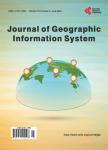Are Spatial Factors Important in the Adoption of Eco-Friendly Agricultural Technologies? Evidence on Integrated Pest Management (IPM)
Are Spatial Factors Important in the Adoption of Eco-Friendly Agricultural Technologies? Evidence on Integrated Pest Management (IPM)作者机构:Department of Agricultural Extension and Information System Sher-e-Bangla Agricultural University Dhaka Bangladesh Department of Geography School of Humanities Universiti Sains Malaysia Penang Malaysia
出 版 物:《Journal of Geographic Information System》 (地理信息系统(英文))
年 卷 期:2017年第9卷第2期
页 面:98-113页
学科分类:1002[医学-临床医学] 100214[医学-肿瘤学] 10[医学]
主 题:Spatial Factors Adoption IPM Logistic Regression Model
摘 要:Past studies on the adoption of integrated pest management (IPM), analyzed the significance of non-spatial factors (social, economic, institutional and management factors etc.) in influencing farmers’ decision to adopt IPM while the present study analyzed spatial factors in addition to these non-spatial factors to address the questions-i. Do the spatial factors significantly influence the farmers to adopt IPM? If yes, then to what extent they do affect IPM adoption? The data were collected from 331 vegetable farmers of Narsingdi district, Bangladesh, by conducting a household survey. Farmers’ nineteen characteristics under five broad groups, namely social, economic, institutional, management and spatial factors were analyzed. The result of the binary logistic regression model revealed that two spatial factors namely the distance of farmers’ house from the nearest market and the distance from agriculture office, along with some specific social, economic, institutional and management factors, significantly influenced the farmers’ to use IPM. It is also observed from the model that the role of spatial factors was important in influencing IPM adoption. However, with regard to the level of importance, their contribution was less than those of economic and institutional factors but more than those of social and management factors. The influences of these factors in practicing IPM are discussed individually as well as group based. The findings show significance in domestic policy making.



